One year into Sudan’s war, its people yearn for peace amid soaring hunger

In what was once a classroom, 13-year-old Ahmed sits in front of a blank chalkboard. He has not attended school for months. But since he escaped Sudan’s war-torn capital, Khartoum, three weeks ago, home is now this paint-chipped room more than 800km away – in one of dozens of schools across the eastern city of Port Sudan now housing war-displaced people.
NEWS RELEASE: Economic fallout of Sudan war deepens hunger
Ahmed’s eyes are full of fear. He says he can’t remember anything from the last year he spent trapped in a besieged area of Khartoum. It’s like his memories are stowed away tightly in a box that he’s scared to open.
He does recall one thing, though.
“There was no food at my home ... before we left,” Ahmed says. “That’s why it’s better in Port Sudan. At least there is food here.”
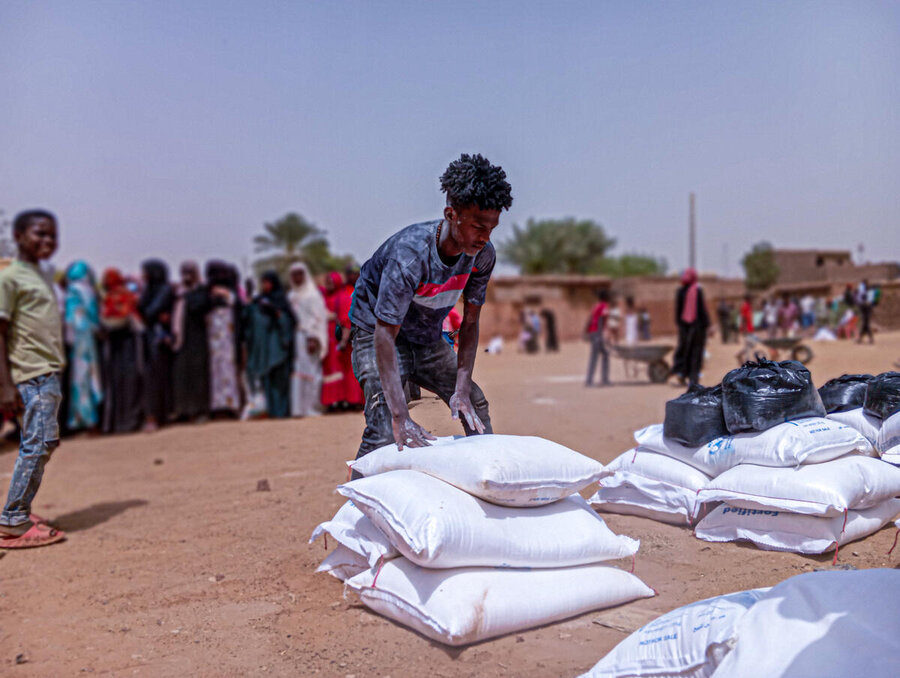
Ahmed is among millions whose lives have been upended by a conflict that reaches its one-year mark on Monday (15 April). Beyond killing and injuring thousands, fighting between rival armed groups has triggered the world’s largest displacement crisis – with more than 8.6 million people seeking refuge inside and outside the country. The regional fallout of Sudan's war also risks triggering the world's biggest hunger crisis.
Access key
Today, more than one-third of the population – 18 million people – face acute or emergency food insecurity, a number that will likely soar as the lean season approaches in May.
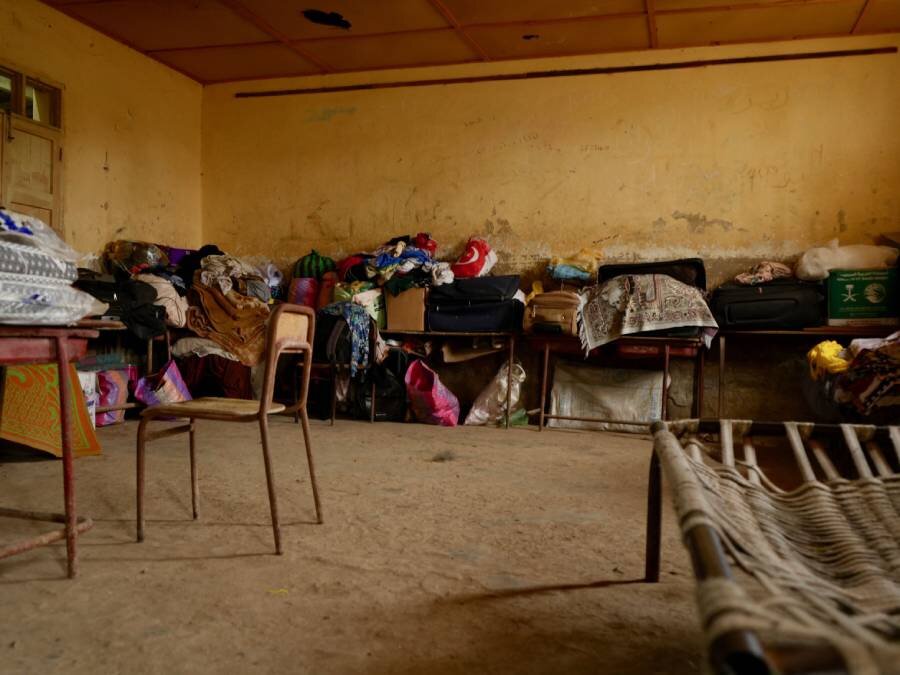
“The war is not a selective event, it has affected everyone,” says World Food Programme (WFP) Media Officer Mohamed Elamin, who himself fled Khartoum with his wife and child. He counts among the many Sudanese humanitarians now trying to help their fellow countrymen survive.
While WFP has delivered food and nutritional assistance to over 6 million people over the past year, vast areas remain largely out of reach for aid organizations.
Indeed, only one in 10 people facing emergency hunger (Phase 4 on the Integrated Phase Classification system which measures acute food insecurity) are in areas regularly accessible to WFP — leaving the other 90 percent trapped in conflict hotspots, such as Khartoum, Kordofan, Darfur and Gezira states.
Hunger and malnutrition surging across West and Central Africa, says report
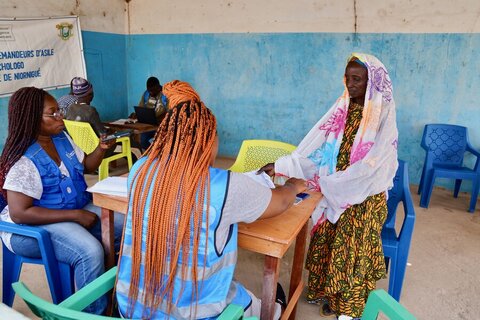
That includes the family of Abdulaziz, who scrapes a living selling tomatoes, eggplants and other produce on the outskirts of Port Sudan. Originally from Umm Ruwaba in south-central Sudan, he moved here seeking work before the war began.
He still manages to send money home to his wife and four children, after the war also reached their town. He has not seen them since last June. Attempting the 18-hour drive home, peppered with checkpoints and fighting along the way, would be futile.
“Sometimes I don’t hear from them for weeks, due to network outages,” says Abdulaziz, who asked that his real name not be used. “I know it’s not safe where they are. I can only hope and pray they are managing to survive.”

There are small breakthroughs, however. WFP aid convoys recently reached war-torn Darfur for the first time in months, carrying enough support for a quarter-million people. But we and other humanitarians are pushing for unfettered access at all times, to meet massive needs before it’s too late.
“We need aid to be consistently reaching war-ravaged communities through every possible route,” says Eddie Rowe, WFP’s Country Director and Representative for Sudan. Especially cross-border access from Chad to Darfur is vital, he adds, to reach people facing alarming hunger levels, “and communities where children are already dying of malnutrition.”
Calls for peace
In safer parts of eastern and northern Sudan, however, WFP’s rations that include cereals, pulses, oil and salt amount to a lifeline for many. Among them is Khartoum tea vendor and renowned rights activist Awadiya Mahmoud, who found refuge in Port Sudan after a year on the run.
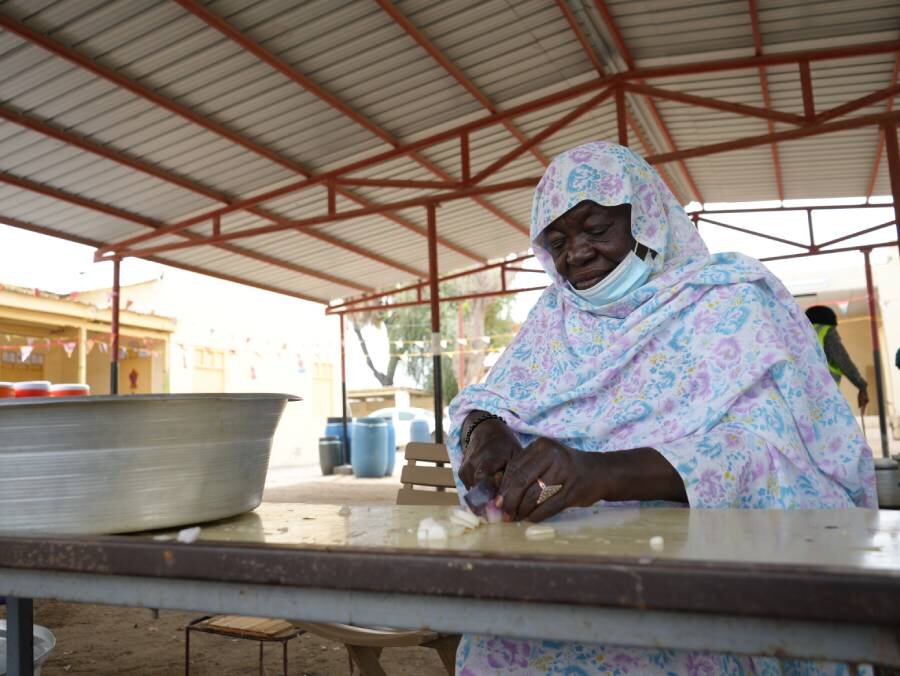
She recalls her latest flight, from Gezira state’s capital Wad Madani in December, as her post-war haven became a new battle zone.
“That day was really tough – I left everything I had behind once again,” says Awadiya, who is known by her first name, recounting her five-day, 1,000-km journey to the Red Sea port city.
Throughout a year of upheaval, Awadiya continued to support as many people as she could, organizing and cooking food in communal kitchens for others who fled. Now she’s running a soup kitchen where people pool their foods.
“WFP came and gave us sorghum, peas, salt and oil,” she says. “It helped because people had nothing. WFP really stood by our side.”

Awadiya lives in the same former school as Ahmed and Fatimmah, the displaced Khartoum teenager and his mother. Sudan’s war has pushed strangers together, and the country’s 47 million people are facing the same horrific consequences of war.
“Our hope is for the war to stop, so we can go back home,” Awadiya says. “We don’t want the war. It harmed us, particularly women.”
Her sentiments are echoed by many others here.
Sitting on a simple bed she shares with several other relatives, Ahmed’s mother Fatimmah explains how her family of seven survived in Khartoum: by diluting and mixing any grain they had left into a malt juice. In March, they were finally able to escape to Port Sudan.
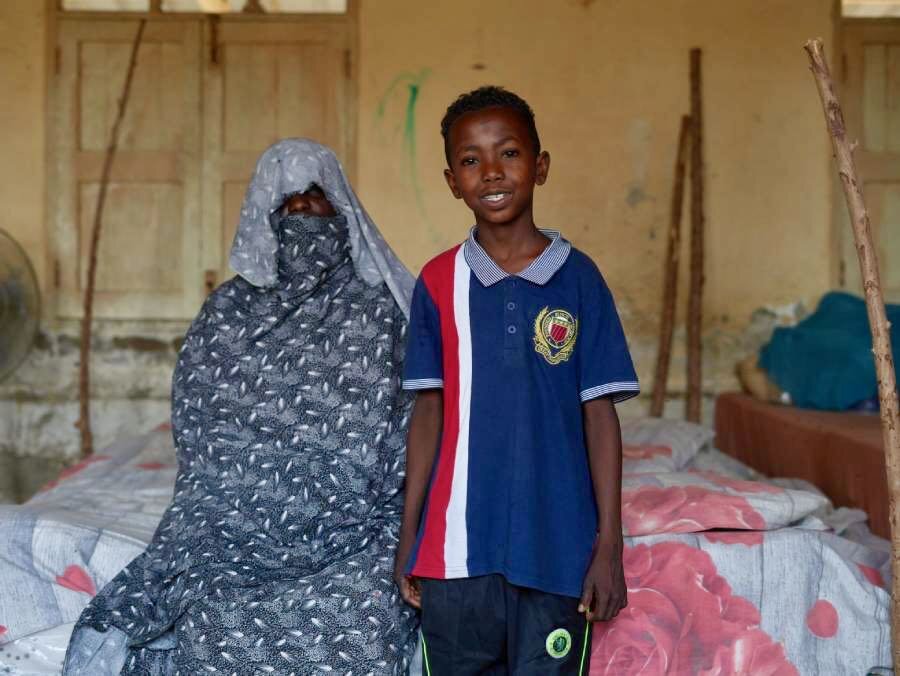
She describes hopes for a future where her children can thrive, and where classrooms are used for learning instead of surviving. But that would require peace.
The warring parties “did not lose anything – we lost everything,” Fatimmah says. “They are taking everything away from us. They need to sit down, speak, and solve this.”
WFP’s emergency response in Sudan last year was made possible through contributions from our donors including Belgium, Canada, Cyprus, Czech Republic, European Commission (ECHO), France, Germany, Hungary, Ireland, Italy, Japan, Kuwait, Luxembourg, Malta, Mohammed bin Rashid Al Maktoum Global Initiatives (MBRGI), Netherlands, Norway, South Korea, Slovenia, Spain, Sweden, Switzerland, Ukraine, the UN Central Emergency Relief Fund, and the United States of America and the and the Church of the Latter-day Saints.


